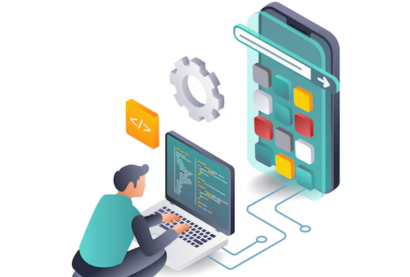

Blogs

Software application engineering is rapidly evolving as technology advances, bringing new opportunities and challenges. As businesses and consumers increasingly rely on complex, scalable, and secure software solutions, engineers must stay ahead of the curve. The future of software application engineering will be driven by innovations in automation, artificial intelligence, cloud computing, and agile methodologies.
In this dynamic field, software engineers are continuously adapting to meet the demands of an increasingly digital world. From developing mobile apps to enterprise software solutions, the key to success will be the ability to create seamless user experiences, optimize performance, and maintain robust security protocols.
“Software engineering is not just about writing code; it's about building scalable, efficient, and secure systems that drive innovation and meet user needs.”
The landscape of software application engineering is being shaped by new paradigms like DevOps, microservices, and low-code/no-code platforms. These innovations allow developers to accelerate development timelines, improve collaboration, and deploy software faster than ever before.
01. The Impact of Artificial Intelligence on Software Engineering
Artificial intelligence (AI) is transforming the way software engineers develop and maintain applications. AI can automate testing, identify bugs, and optimize code performance, drastically reducing development time. Machine learning algorithms can also analyze vast amounts of data to predict system behavior and provide insights into user preferences, leading to more personalized applications.


AI-powered development tools are helping engineers build smarter and more efficient applications. These tools can automatically generate code snippets, suggest optimizations, and even refactor entire projects. By leveraging AI in software engineering, companies can deliver more advanced features while reducing costs and time to market.
- AI-driven automated testing and quality assurance.
- Machine learning for predictive analytics and performance optimization.
- Personalized user experiences powered by AI data insights.
- Automated code generation and refactoring tools.
02. Cloud Computing and the Future of Application Development
Cloud computing has become a cornerstone of modern software development. It enables engineers to build scalable, flexible, and cost-effective applications that can be accessed globally. The future of software application engineering will heavily rely on cloud infrastructure for storage, processing, and real-time updates.
By utilizing cloud platforms, developers can create applications that are resilient and capable of handling high traffic loads. Cloud-native architectures, such as microservices and containers, allow developers to build modular applications that can be independently deployed and scaled, ensuring optimal performance across a variety of environments.
As cloud computing continues to evolve, it will play an even larger role in streamlining development, improving collaboration, and enhancing application performance. Software engineers will need to become proficient in cloud services, security protocols, and container orchestration tools like Kubernetes to stay competitive in the field.
03. Embracing Agile and DevOps Methodologies
Agile and DevOps methodologies are becoming integral to the way software engineers approach development. Agile practices focus on iterative development, allowing teams to continuously improve and adapt to changing requirements. DevOps, on the other hand, emphasizes collaboration between development and operations teams, fostering a culture of continuous integration and continuous delivery (CI/CD).
Together, Agile and DevOps create an environment where software can be delivered more quickly, efficiently, and with higher quality. Engineers will need to adopt these methodologies to keep up with the fast-paced demands of modern software development and ensure that applications meet user expectations.
04. Conclusion: The Future is Bright for Software Application Engineers
The future of software application engineering is filled with opportunities for innovation and growth. As technologies like AI, cloud computing, and Agile/DevOps continue to transform the field, software engineers will play a crucial role in shaping the digital experiences of tomorrow. By staying ahead of the latest trends and embracing new technologies, engineers can ensure they remain at the forefront of the industry.

